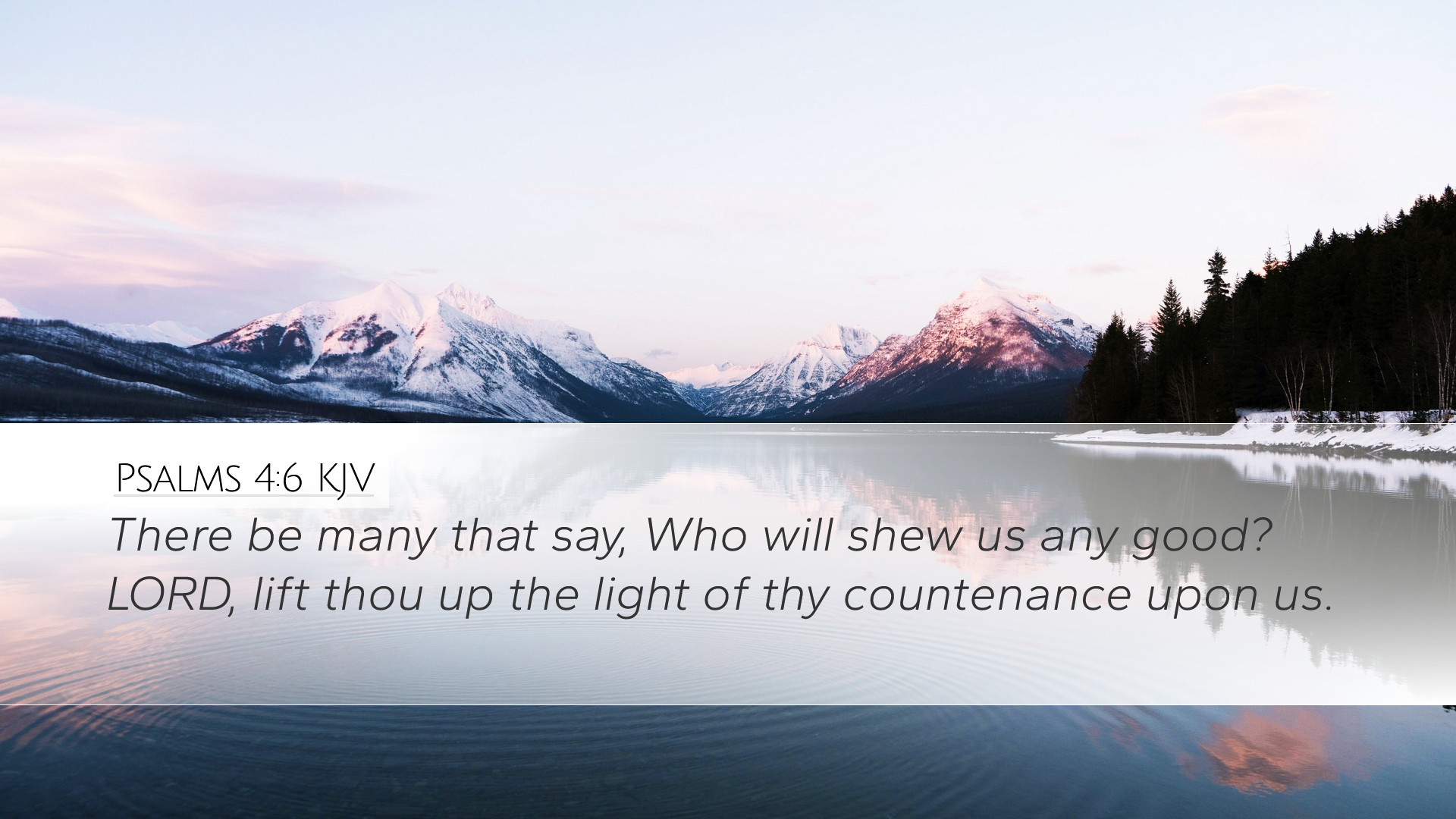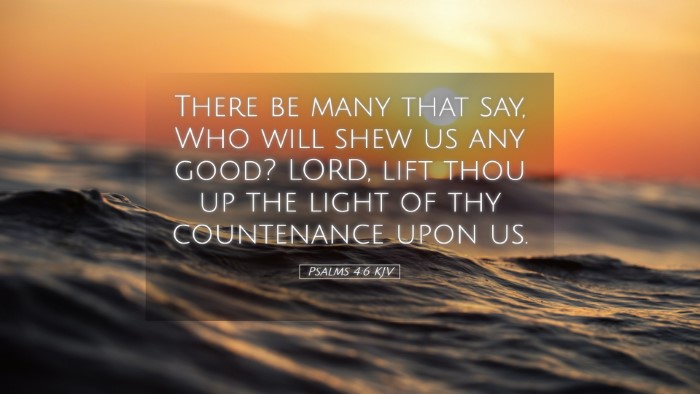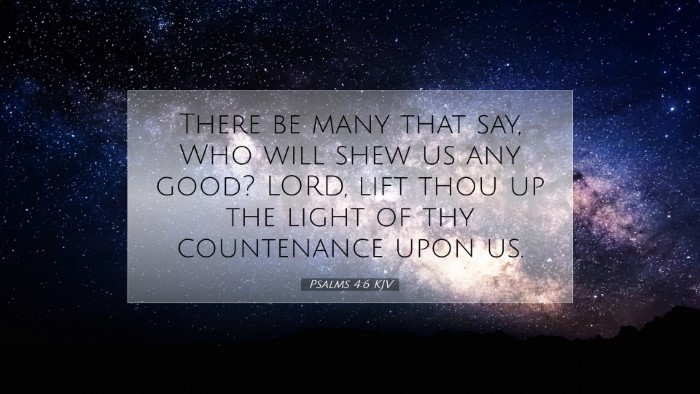Commentary on Psalms 4:6
Psalms 4:6 states: "There be many that say, Who will show us any good? lift thou up the light of thy countenance upon us, O Lord." This verse encapsulates a deep yearning for divine presence and reassurance, which resonates throughout the Psalms, particularly in times of distress.
Contextual Overview
This psalm is traditionally attributed to David and is often classified under the category of evening prayers. David expresses his faith amidst troubling times, reflecting a common human experience: the quest for assurance and recognition of goodness in life.
Insights from Commentators
Matthew Henry's Commentary
Henry begins by highlighting the plight of those who, in turmoil, question the presence of goodness in their lives. He notes that the question posed in the verse reveals a universal search for divine favor amid societal despair. He emphasizes that the “many” are not just the ungodly but can also reflect the struggles within the community of faith.
Henry points out the psychological struggle between faith and doubt. The "light of thy countenance" symbolizes God's presence and approval, where silence of divine affirmation can feel like darkness. Thus, he interprets the psalmist's plea as a genuine yearning for assurance among the turmoil, reinforcing the idea that faith is often tested in times of crisis. He urges believers to seek God's light, which reassures and illuminates their paths.
Albert Barnes' Commentary
Barnes takes a slightly different approach, analyzing the social context of the verse. He interprets the phrase "Who will show us any good?" as a reflection of the skepticism surrounding David’s claim of divine favor. They express a desire for visible, tangible evidence of goodness, which echoes in the lives of those grappling with despair. He points out that this reflects a broader humanity's challenge: the pursuit of visible blessing in uncertain times.
He elaborates on the prayer for the Lord to lift His countenance, suggesting that this reflects the profound relationship between God and man. The "light of thy countenance" symbolizes not just recognition, but also joy, peace, and prosperity that stem from a close relationship with God. Barnes encourages readers to remember that in times of discouragement, the ideal response is to redirect thoughts towards prayer and reliance on divine mercy.
Adam Clarke's Commentary
Clarke contextualizes Psalms 4:6 as an acknowledgment of God's inability to turn away from those who seek Him earnestly. He suggests that David's mention of many seeking good emphasizes the human condition, where despair often leads to a quest for answers. Clarke sees the call to "lift up the light" as both a personal and communal expression of need for divine illumination amidst darkness.
Clarke further elaborates on the historical context, noting that David often faced opposition, leading to moments where he relied heavily on God’s light. His interpretation encourages believers to recognize that asking for God’s presence is a fundamental aspect of faith. In turbulent times, the plea for God's light indicates a desire for clarity, guidance, and reassurance of His unending presence.
Theological Reflections
Psalms 4:6 serves as a reminder of the ongoing human struggle with faith amidst adversity. The biblical authors repeatedly affirm that questioning and seeking God's favor is integral to the growth of faith. The acknowledgment of doubt, as suggested by Henry, Barnes, and Clarke, invites believers into a deeper relationship with God—one that is honest and seeks reassurance.
Significance of Divine Presence
The phrase "lift up the light of thy countenance" is rich with meaning. It symbolizes hope, communion, and the assurance of God’s favor. For pastors and theologians, this verse serves as a powerful reminder of the importance of invoking God's presence in both personal and communal worship, revealing the deep necessity for individuals to feel God's light in their lives.
Application for Today's Believers
- Pastors should encourage their congregations to be open about their struggles and to seek God actively during times of uncertainty.
- Theologians might explore the interplay between human emotion and divine assurance as depicted in this psalm.
- Students of the Bible can benefit from understanding how this psalm fits into the larger narrative of trust and reliance on God amid various trials throughout Scripture.
Conclusion
Psalms 4:6 encompasses a profound truth for all who find themselves questioning the presence of goodness in their lives. The call to lift up God’s countenance reflects a deep yearning for divine connection and assurance, fundamental to the human experience of faith. Through the insights provided by Matthew Henry, Albert Barnes, and Adam Clarke, this verse emerges not just as a lament but as a hopeful prayer that invites believers to seek and trust in the divine light even in the darkest of times.


